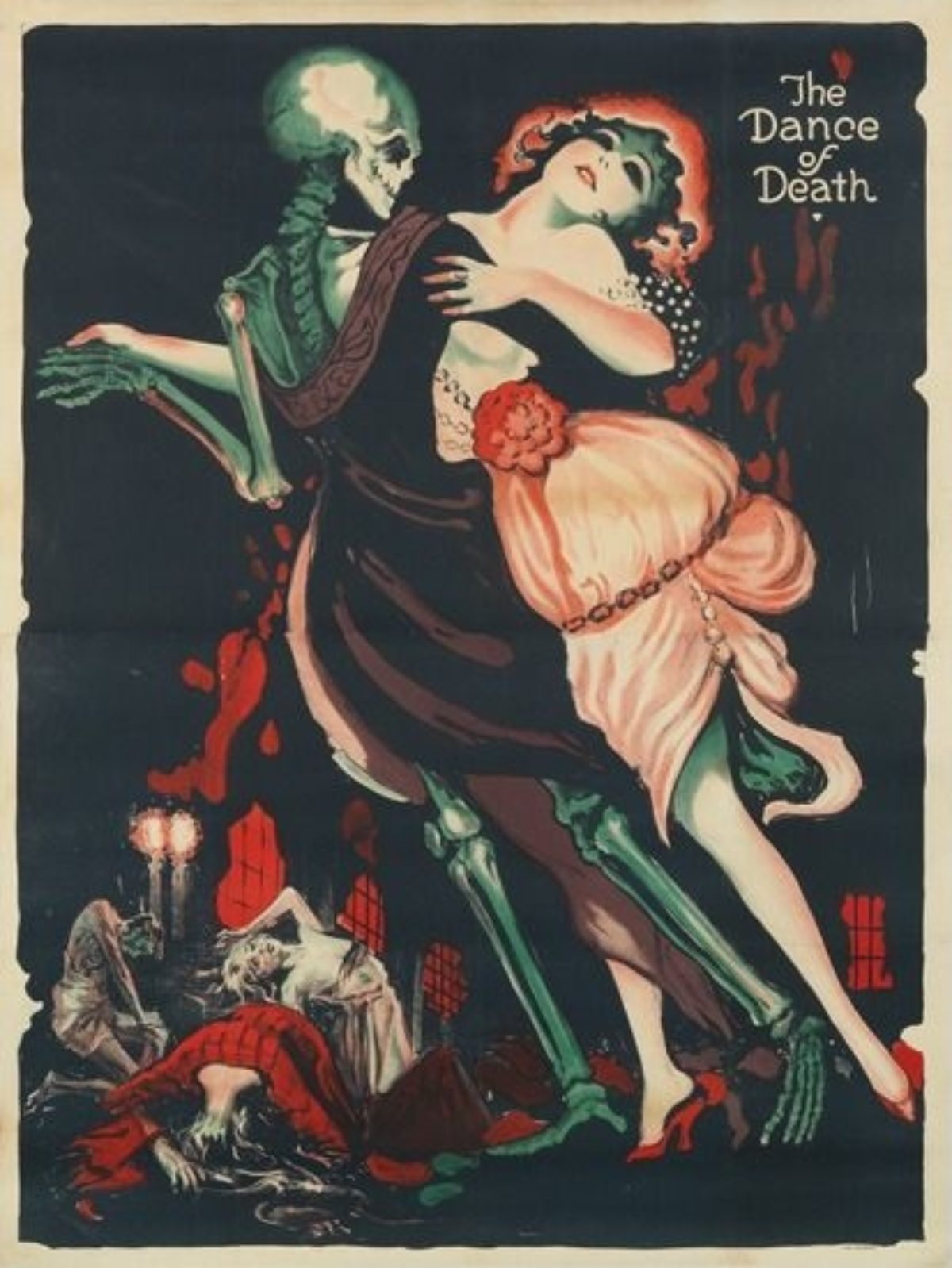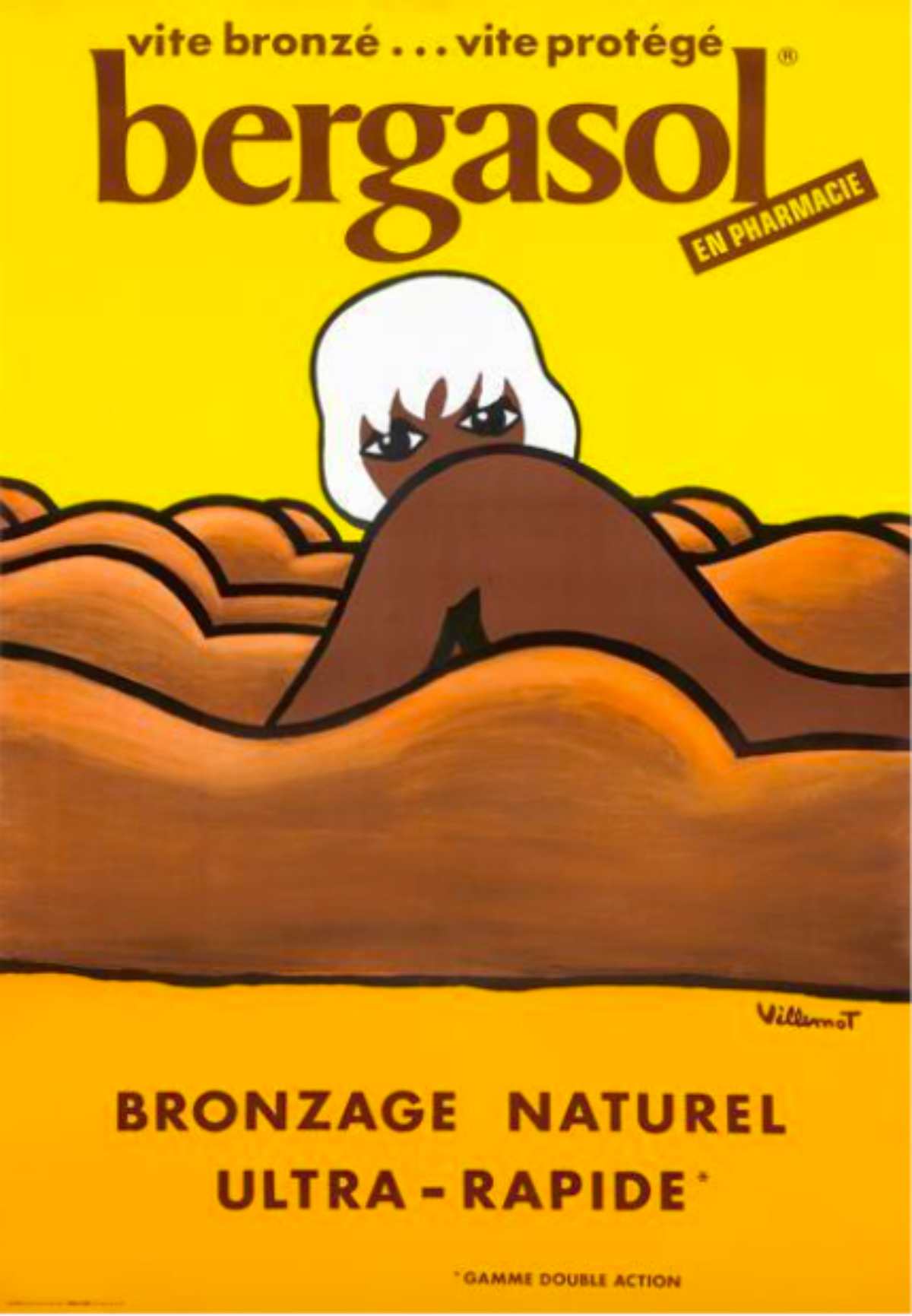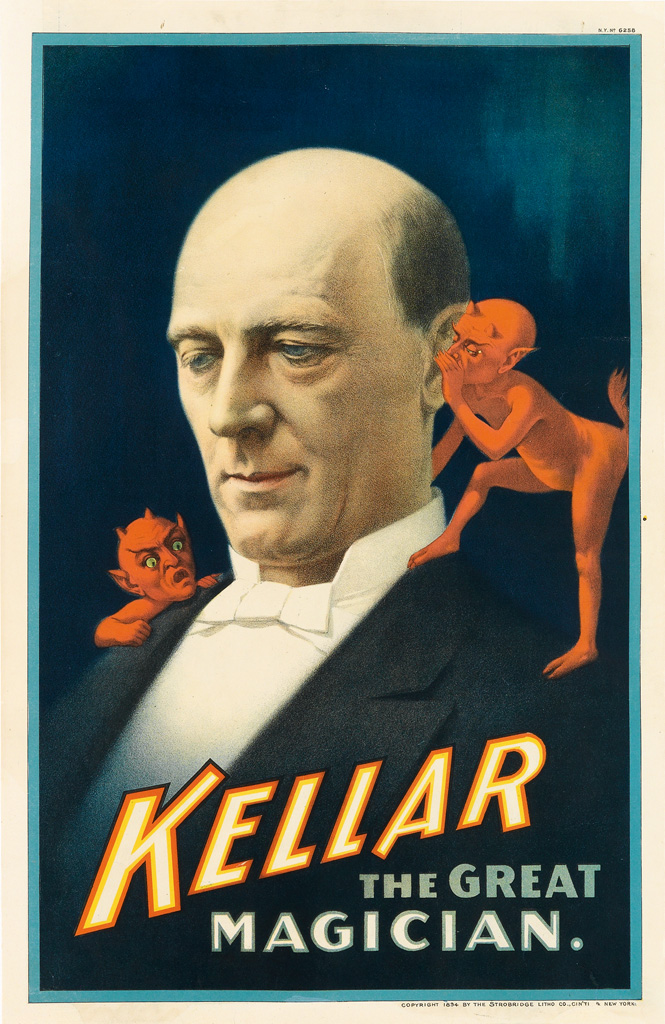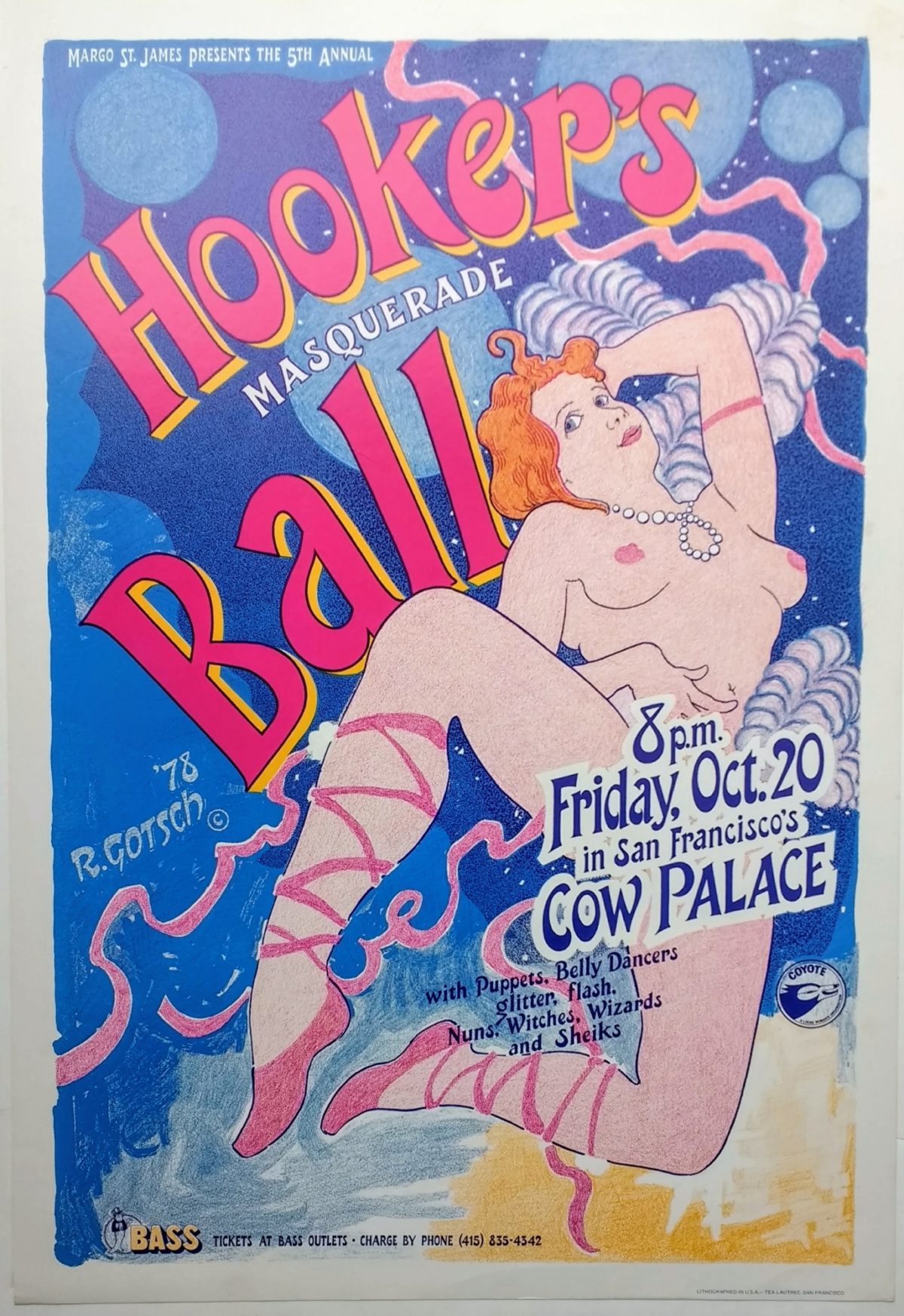
Five Vintage Parties that Outdid your New Year’s Eve Plans

Théâtre de l’Opéra by Jules Chéret, 1892
One of the highlights of the pre-Lenten season in Paris around the turn-of-the-century was a series of three masked balls that took place at the opera house. Since its inception in 1715, this party season was notorious for the star-studded guest list, all of whom came in absolute disguise – from Marie Antoinette to the Marchesa Casati. Music, dancing, drinking, and entertainment would continue until at least five in the morning for the thousands of attendees.
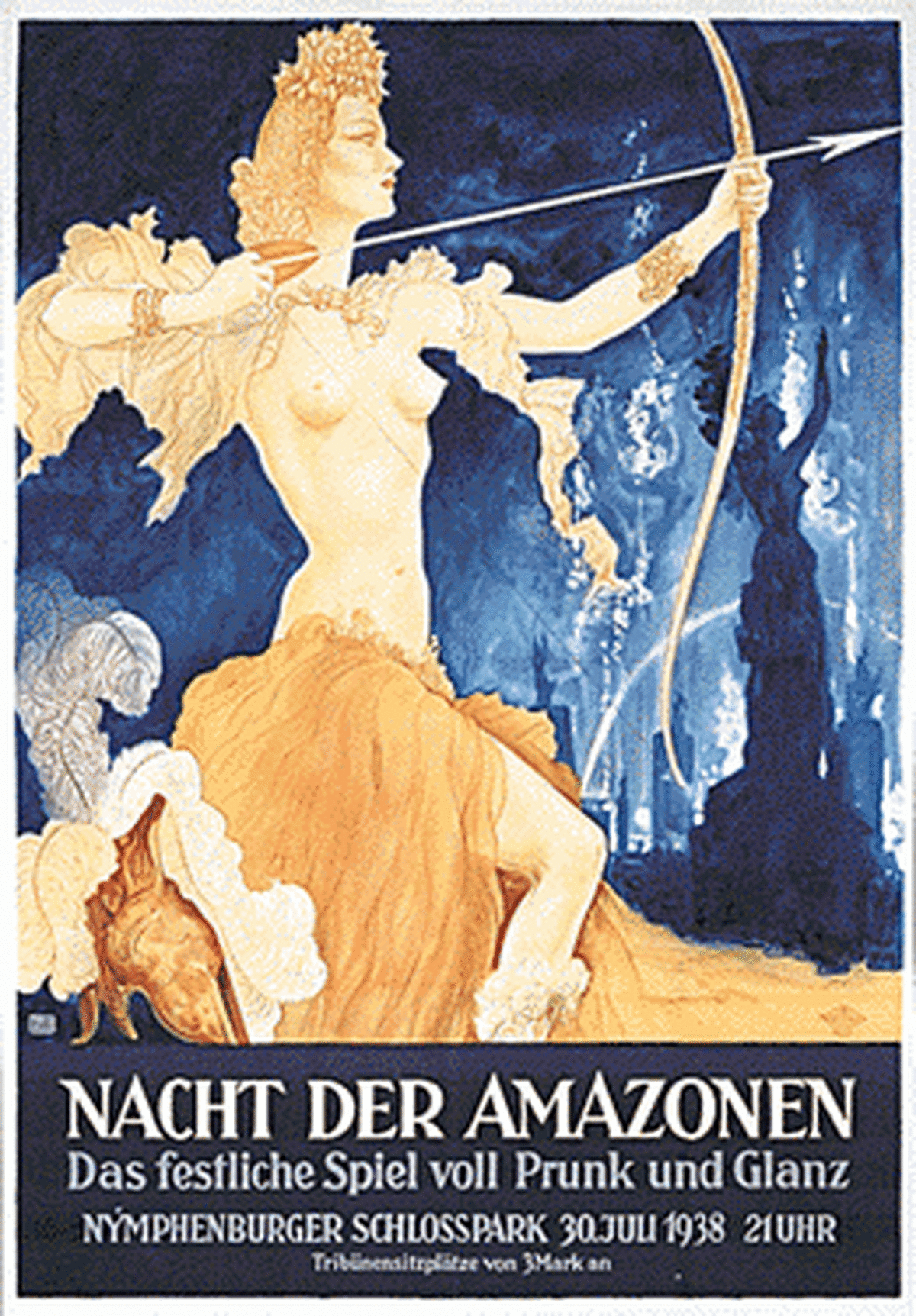
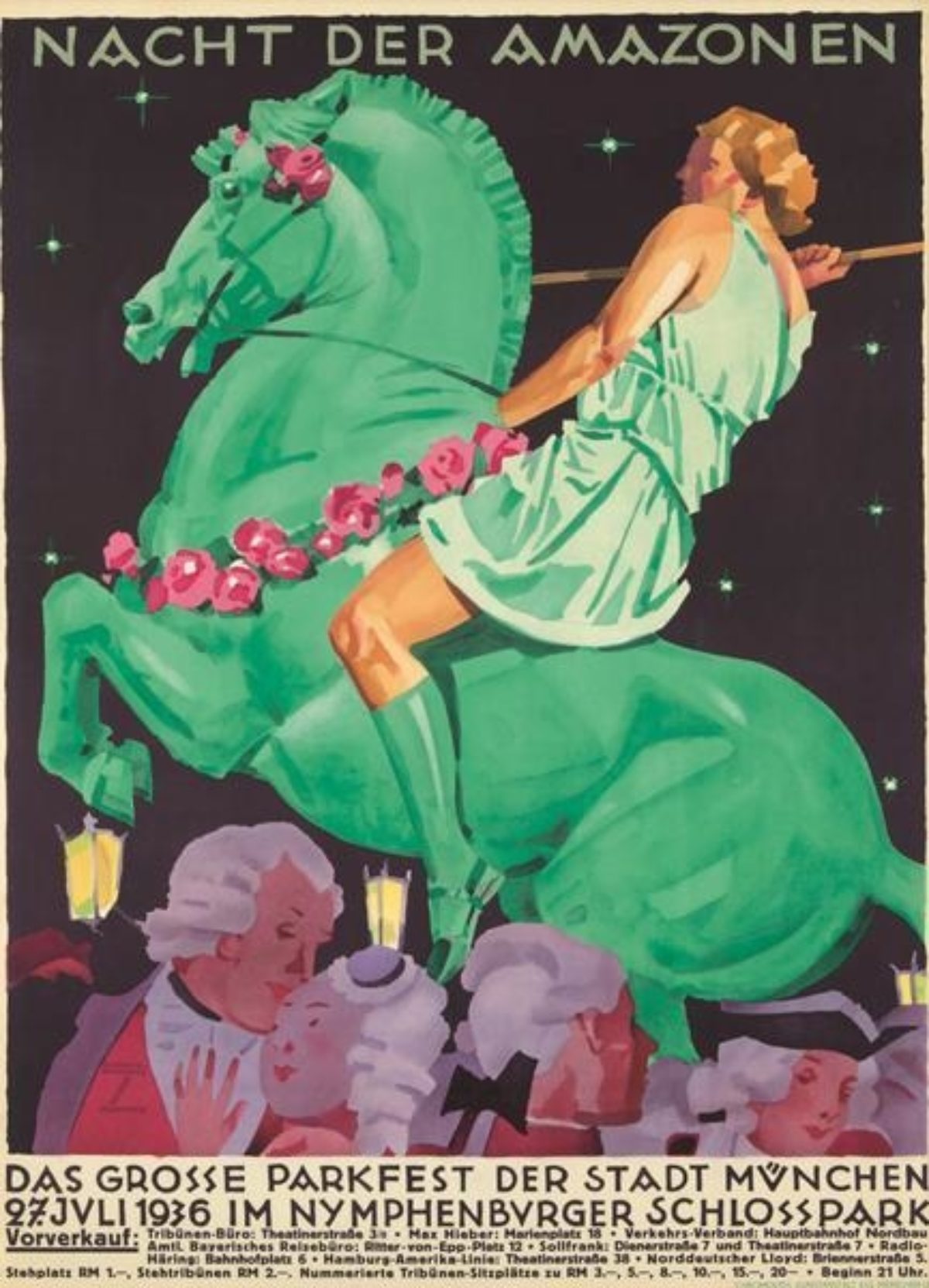
Left: Nacht der Amazonen by Unknown Artist, 1938
Right: Nacht der Amazonen by Ludwig Hohlwein, 1936
Proving that even genocidal maniacs can hire amazing party planners, the Nacht der Amazonen was arguably the most lavish and bizarre party held under the Third Reicht. Thousands of guests would gather in the park of the Nymphenburg Palace dressed in Rococo-inspired costumes. The highlight of the evening was a 700-horse parade of “Amazons” – nude women representing the ideal German body – who would then intermingle with the guests. Photographs and video of the evening show these characters in full gold body paint, practicing archery and acting out scenes from various Greek myths aboard monumental floats.

Hooker’s Masquerade Ball by Robert Gotsch, 1978
Held at San Francisco’s Cow Palace, this was the fifth party organized by notorious feminist Margo St. James with the aim of legalizing prostitution. Archive footage from the various Halloween-time balls feature belly dancers, Dykes on Bikes, drag queens, live music, costume contests, tap dancers, drugs, cheerleaders, a suspended butterfly constructed out of 10,000 inflated condoms, and a bizarre array of celebrity attendees (including OJ and Nicole Simpson, George Carlin, Francis Ford Coppola, and Jane Fonda). Supposedly Prince Charles was in town at the time of one of these parties, and St. James rented a horse and carriage to woo him (unsuccessfully) to the ball outside of his hotel. Another year she entered the packed room on top of an elephant she borrowed from Marine World.
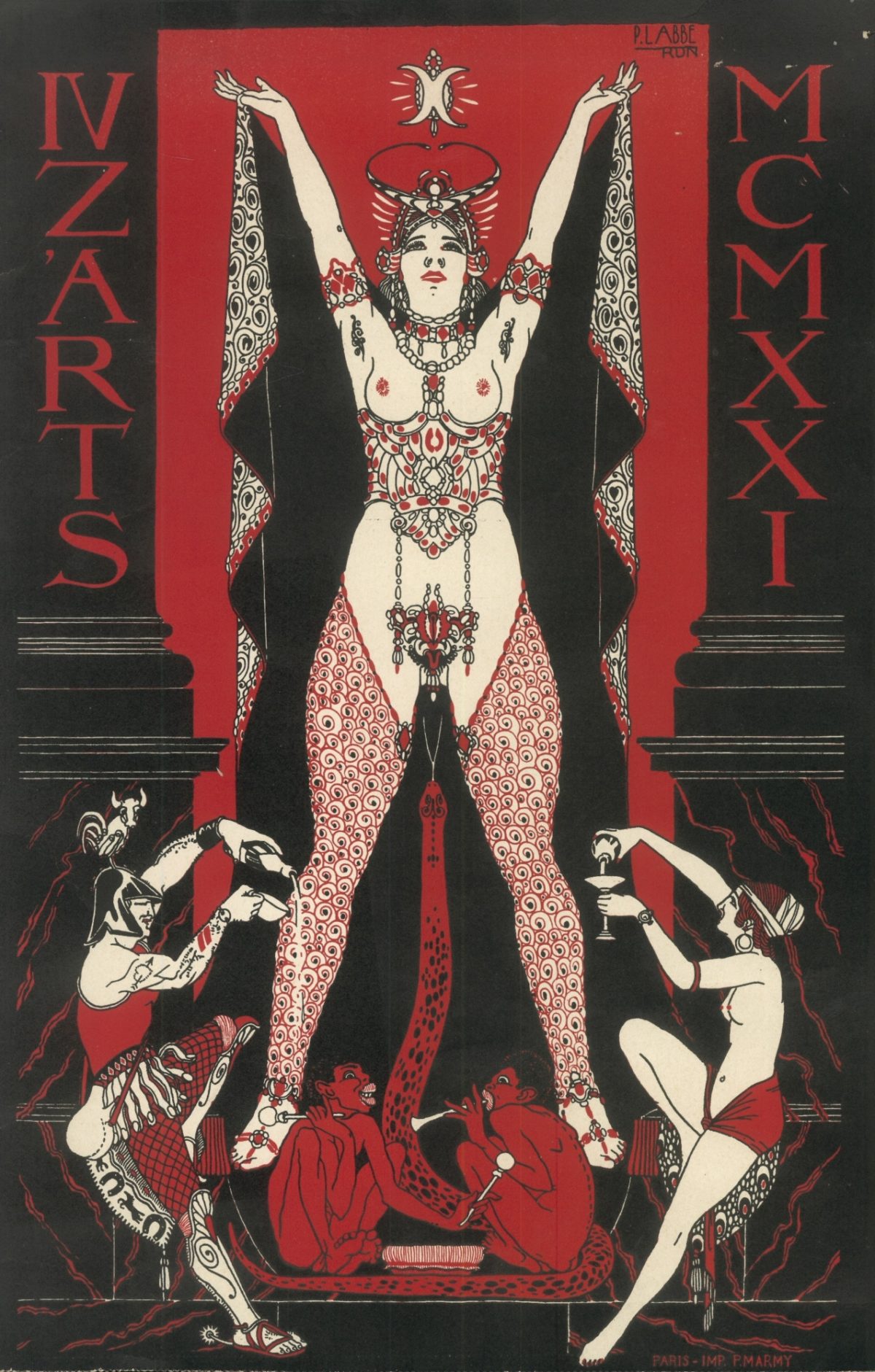
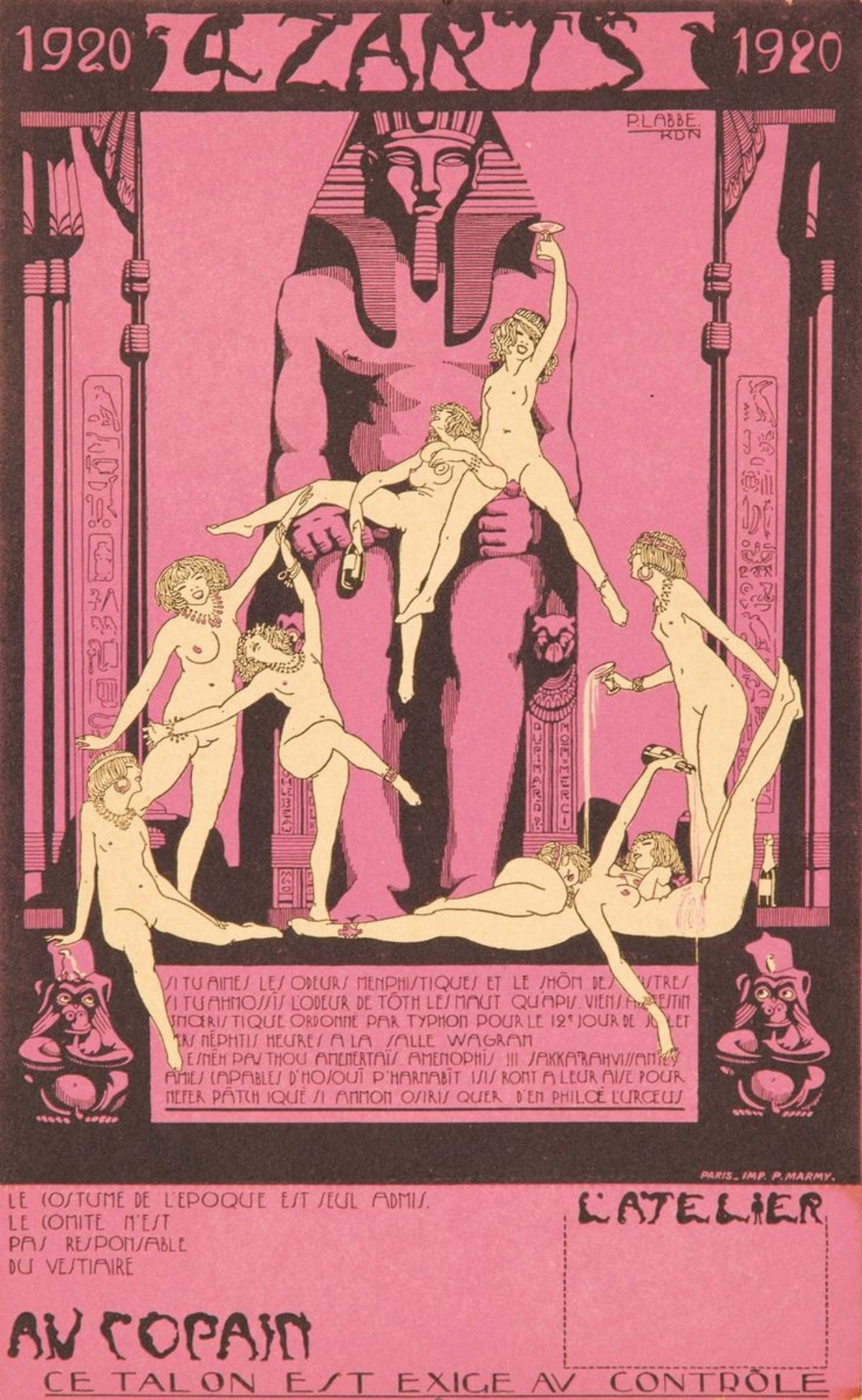
Bal des Quat’z’Arts by P. Labbe, 1920 (right) & 1921 (left)
Held annually for just over 70 years, the Four Arts Ball was the bohemian students’ answer to the more posh parties of Paris. Known as a “riotous Saturnalia,” nude models would wander around the venue waiting to be painted (or painted on), while guests would mingle, drink, and dance in diaphanous Greek costumes. A parade for each of the art departments (architecture, painting, sculpture, and engraving) was arranged, with each group competing for the most ostentatious float and performance. The festivities would end sometime around seven in the morning, at which point the students would descend upon the Latin Quarter, marching toward the Louvre to wake up Paris.
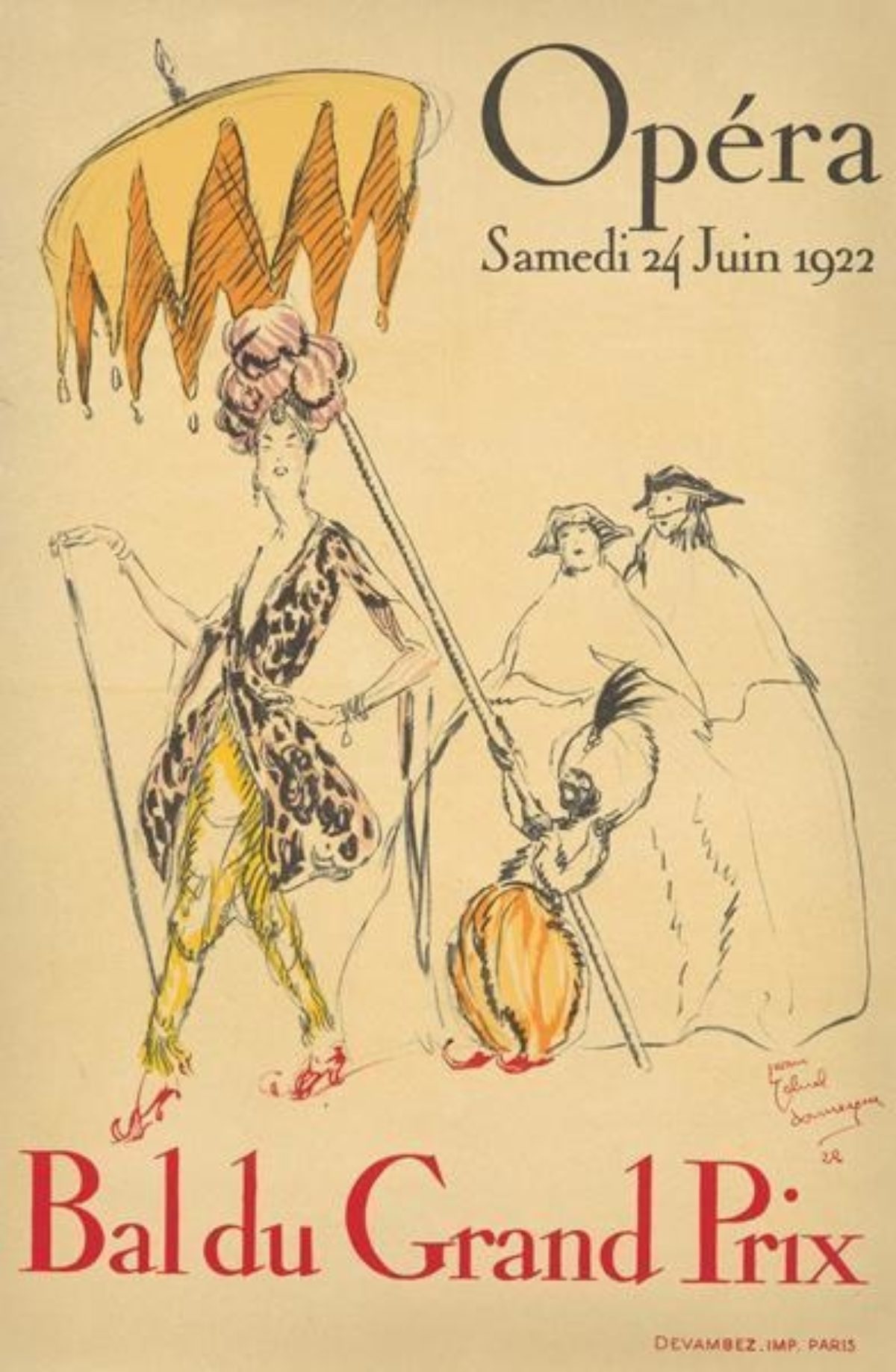
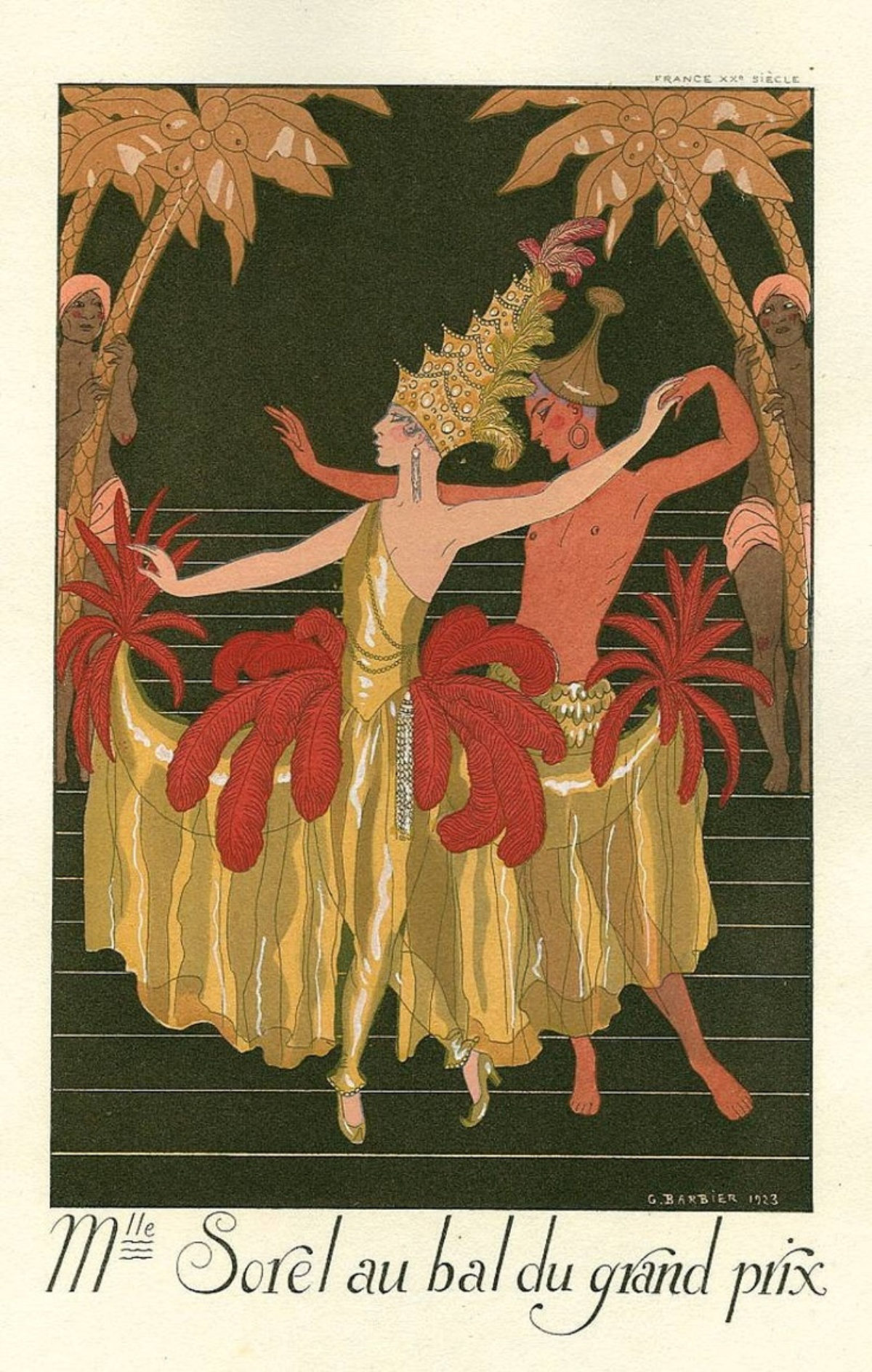
Left: Bal du Grand Prix by Jean-Gabriel Domergue, 1922
Right: Mlle Sorel au Bal du Grand Prix by Georges Barbier, 1923
Better known as the Ball of a Thousand Beauties, this outrageous party blended the classic 18th century Venetian masked ball with the exoticism of the Middle East. Held at the Paris Opera, the venue was entirely transformed with Oriental tapestries and gold swags festooning the boxes, and a large swath of black velvet engulfing the stage. Newspapers would report that “more than any previous fashion event of a similar character has it left its impression on Paris” (The Illustrated Milliner, Vol XXIII, No. 9, September 1922).

